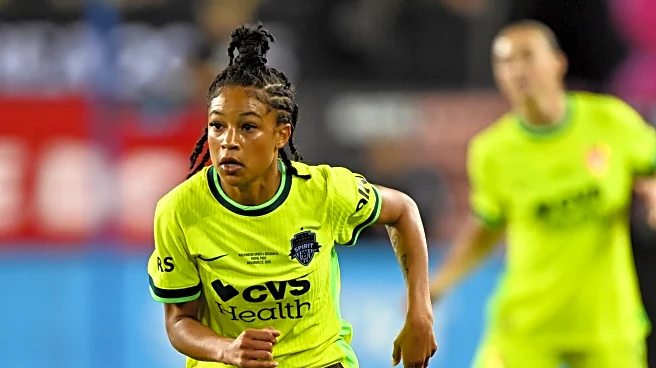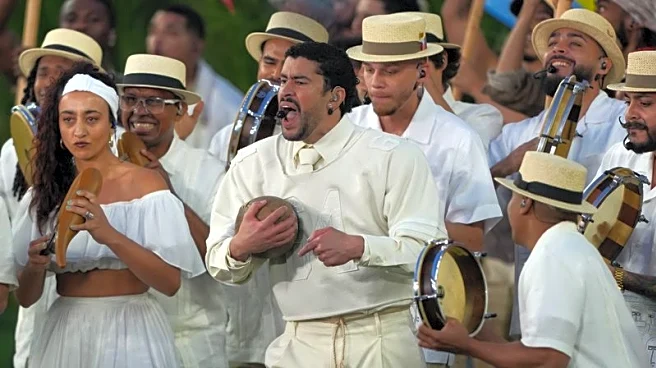What's Happening?
The Buffalo Bills are actively exploring trade options ahead of the NFL trade deadline, with New Orleans Saints wide receiver Chris Olave emerging as a prime target. Olave, known for his impressive performance,
has accumulated over 1,000 yards in each of his first two NFL seasons. Despite being limited by injury last season, he has made a strong comeback in 2025, recording 55 catches for 560 yards and three touchdowns in nine games. The Bills are considering Olave to enhance their receiving corps, potentially making him their number one wide receiver. His current contract, which extends through the 2026 season, adds to his appeal, although it may also increase the trade cost.
Why It's Important?
Acquiring Chris Olave could significantly impact the Buffalo Bills' playoff prospects and their quest for a Super Bowl appearance. With quarterback Josh Allen at the helm, the Bills have consistently been competitive but have yet to reach the Super Bowl. Adding Olave to the roster would provide Allen with a top-tier receiving option, potentially elevating the team's offensive capabilities. The move would signal the Bills' commitment to maximizing their chances during Allen's prime years, addressing a critical need for a reliable wide receiver. While the trade may require substantial draft capital, the immediate benefits could outweigh future costs.
What's Next?
As the trade deadline approaches, the Buffalo Bills must weigh the potential benefits of acquiring Chris Olave against the cost. The decision will likely involve negotiations with the New Orleans Saints, who may be reluctant to part with Olave due to his contract and performance. If the Bills proceed with the trade, it could set off a series of strategic adjustments within the team, focusing on integrating Olave into their offensive scheme. The outcome of these negotiations will be closely watched by fans and analysts, as it could reshape the Bills' trajectory for the current season and beyond.
Beyond the Headlines
The potential trade for Chris Olave highlights broader trends in the NFL, where teams are increasingly willing to invest in high-caliber players to secure immediate success. This approach reflects a shift towards prioritizing short-term gains over long-term planning, especially for teams on the cusp of championship contention. The move also underscores the importance of strategic player acquisitions in building a competitive roster, emphasizing the role of management in navigating complex trade negotiations.











